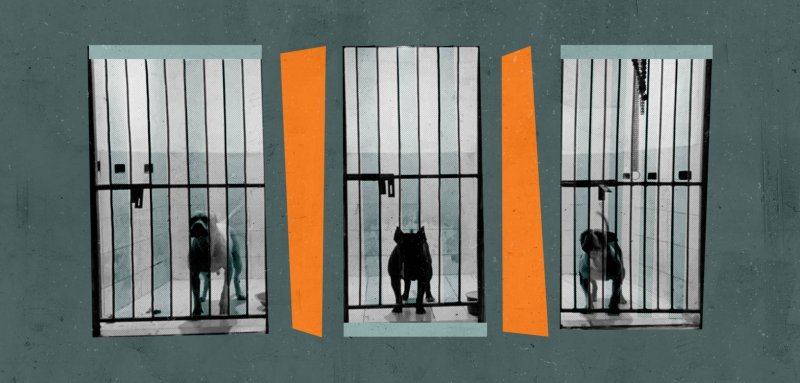Five years have passed since our friendship, the sound of his continuous calls had been motivation for me to go out and look for him. I went out, carefully looking around, to find a small black mass sitting behind the wheel of a car facing the house. I felt at that time that God had sent him to me. He was afraid, his mother had left him alone in our street, and I tried to reassure him but he wouldn’t calm down. I left him a small warm box with some milk to fill in as a substitute for his mother. I called him Lulu, my little street cat friend, and from that day on, he would greet me with grateful and appealing looks on the street and then follow behind as I entered shops, hiding and winding between my feet. I learned from him how to love an animal and talk to it and get attached to it. About a month ago, I stopped seeing him. Whenever I’d see another feline on the street I stop and ask it, “Haven’t you seen Lulu?”
After having gotten used to the care and attention of his owners, the dog one day finds himself on a rooftop with a thug giving him drugs to make him aggressive and sic him on passers-by, or to take part in dog fighting bets for 100 or 200 Egyptian pounds
The expenses crisis
The streets cannot accommodate any more pets, and they’re no longer limited to the usual, local stray cats and dogs. Wherever a person sets foot, they can find a lonely, frightened Persian cat waiting to be fed the way it has gotten used to. Amro Mohamed, 48, is a father of three children, two of whom are in high school. A year ago, his house had 13 cats, as he is a pet lover and has always wanted to take care of them. He tells Raseef22 that the first cat he bought was from a small shop near his house, and that it hadn’t been expensive at the time. Despite working freelance and lacking a fixed monthly income, he decided to keep it and take care of it, especially with his children getting attached to it.
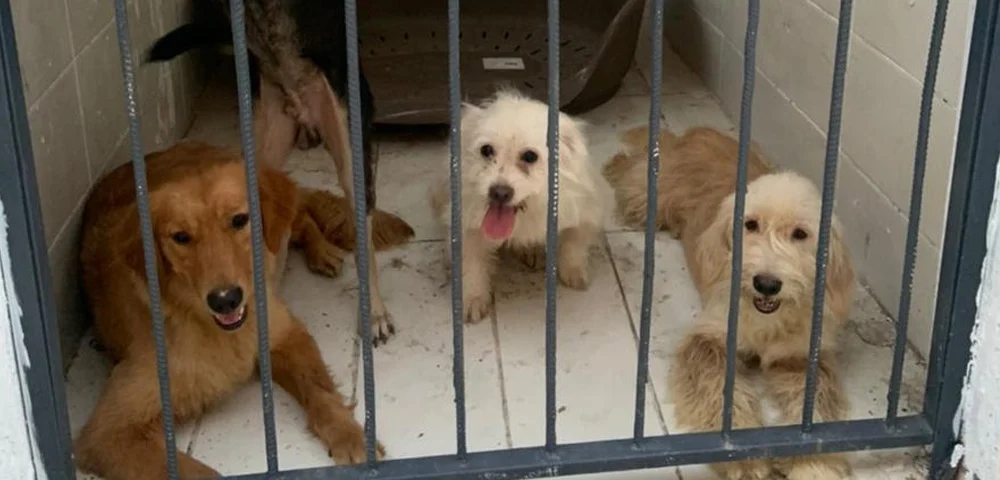
Mohamed took responsibility for his little cat, and one of his neighbors gave him another cat that he could no longer afford to take care of, and just a few months later, Amr Mohamed found himself responsible for a total of 13 cats. He loved them all and tried to take care of them, but the deteriorating economic conditions prevented him from fulfilling his responsibilities towards them, and he had to make a choice between providing his cats’ expenses and paying for his children's lessons, according to what he disclosed to Raseef22. Amr refused to talk about the pet abandonment phenomenon that has recently begun spreading, only adding that he now owns just one cat.
The average price of dry food for cats reached 50 Egyptian pounds per kilo instead of 40 pounds, while the price of a litter bag reached 70 pounds after it used to be 50 pounds
Boarding homes: A way to abandon pets
The economic crisis and the high prices of pet supplies are the main reason that the shelter of Abdel Rahman al-Tohamy (owner of a dog boarding house) has suddenly filled up with animals, forcing him to close his business after only one year of work.
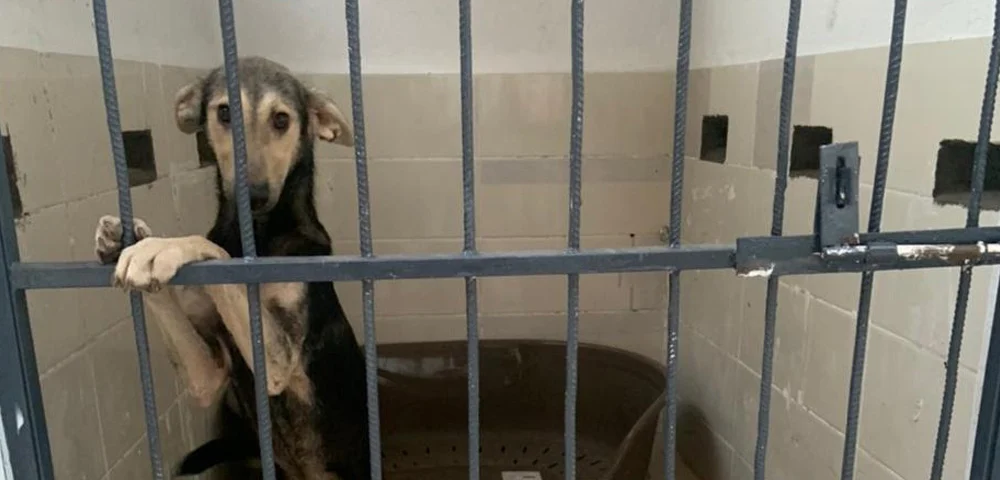
Al-Tohamy tells Raseef22 that the wave of price hikes began with Ramadan of 2022, and that was when he was surprised to find that his animal hotel was being used as a way to abandon pets. A dog owner would pay a week for the cost of boarding and then leave the dog there and disappear. Following many attempts to contact him, the pet owner would finally answer a month later that he can no longer afford the dog's expenses, proposing that al-Tohamy sell the dog and keep its price in exchange for hosting it for the past few weeks.
This was not limited to the boarding house that al-Tohamy owns. By contacting other owners of pet boarding houses, al-Tohamy soon learned that this type of pet abandonment has become a "new trend". He tells Raseef22 that the rise in the prices of pet supplies coincided with the decline in the prices of the pets themselves. Even though he refuses to see them as some sort of entertainment or recreational commodity, society deals with them based on this way of thinking, and thus they were the most affected by the economic crisis. Unless the dog was trained to guard, “it will not fetch a good enough price”. Things continued this way until the crates in his hotel were completely filled, and he became responsible for 14 dogs with no income to take care of them.
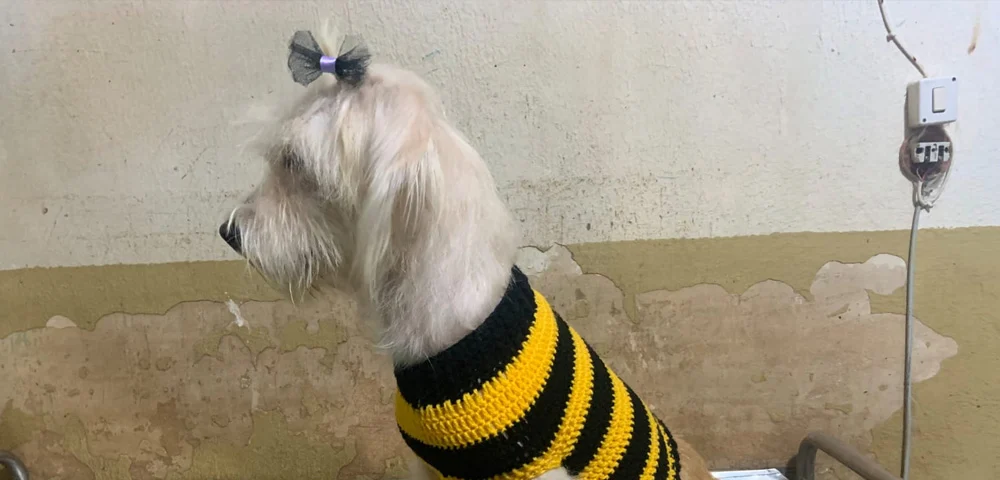
The high prices of poultry were the final reason for Tohamy to abandon carrying on with his business, explaining that he was getting a symbolic price for housing the pets, and with the insanely rising costs that affected everything, and his being responsible for a large number of dogs, "it was no longer possible. The price of a kilo of chicken waste (chicken heads, necks, legs, and wings) has become 32 Egyptian pounds after they had been 7 pounds, with wings costing 45 pounds and legs 10 pounds”, so he found no other way but having to close his business and put the dogs up for adoption while making sure to follow up on them with their new owners, so that they would not be abandoned again.
Boarding houses are the most merciful means of pet abandonment, since some decided to dump their pets in the streets in an attempt to lessen their financial burdens. Abdel Rahman tells Raseef22 that domestic animals living in homes have much less immunity than street animals, as dogs immediately become infected with many diseases, such as scabies (mange), worms, and viruses after being abandoned, not to mention the harassment they are subjected to on the street at the hands of children, especially dogs that get tied, strangled, beaten, and tortured as a means of entertainment.
A death sentence
Mohamed Abdel Dayem, owner of a pet supplies store, agrees with the fact that the main reason for the abandonment of pets is the high cost of caring for them under the current difficult circumstances. He tells Raseef22 that the average price of dry food for cats reached 50 Egyptian pounds per kilo instead of 40 pounds, while the price of a litter bag reached 70 pounds after it used to be 50 pounds. He explains that the dog crisis is even worse, as chicken waste represents their main source of nutrition and, it is now either unavailable or expensive.
Abdel Dayem struggles to provide food for his dogs. He predicts that the wave of pet owners getting rid of their animals will increase if the current situation continues, which in his opinion represents a "death sentence for domestic animals", because of their inability to adapt to the street, in addition to the fear and distress of being separated from their owners. He explains that families are barely being able to provide for their basic expenses in light of the current high prices.
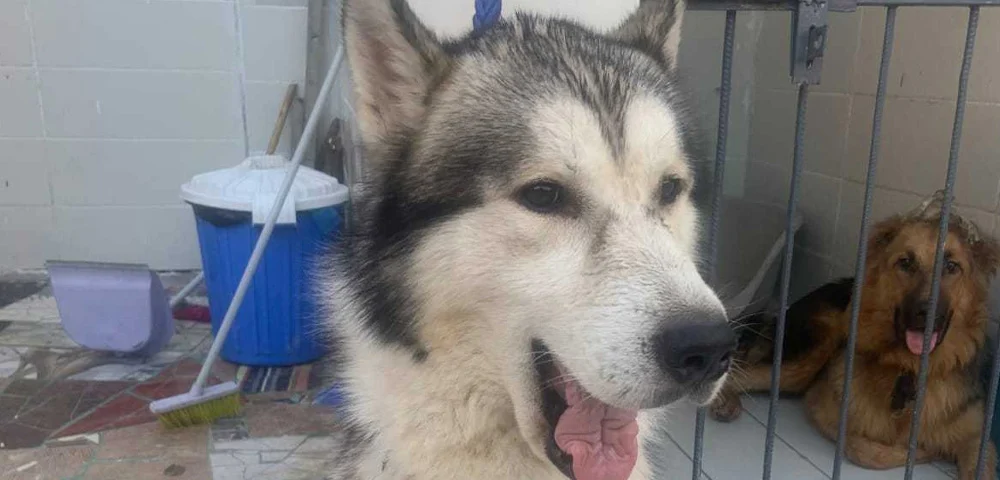
In a house garden full of street cats, Nelly – her current name – choses a distant spot to curl up on herself. She doesn’t try to approach her feline companions, and her clean fur and evident fear points to the fact that she is a newly abandoned house cat. Mohamed Mohamed says that his mother felt sorry for the cat, so she fed her and waited for him to return home to ask for his opinion on whether they could keep her. He agreed to rescue the cat off the street and take her in, explaining that at first she refused to eat any food other than dry food, but after a while, and due to the high prices, she succumbed to eating luncheon meat (cold meat of modest quality that is high in sodium and heavy metals) and processed cheese triangles.
Abandoned animals victims to drugs and bets
The loyalty of pets and their attachment to their owners can be summarized in a scene narrated by Ghada Nabil about a dog that decided to stay next to its owner's grave for a whole week. Any and all attempts to remove the dog from the place carrying the body’s smell, ended in failure.
Ghada Nabil, an animal rights activist and commissioner of animal welfare associations in dealing with prosecution offices and police stations, attributed the escalating wave of pet abandonment in Egypt to several reasons, most notably "the failure to implement the concept of animal welfare in a real way, and some people not knowing the meaning of actual commitment, for as soon as the animal requires financial expenses or vaccination appointments, it is gotten rid of, not to mention the spread of rumors that pets were carrying the Coronavirus during the pandemic”. She goes on to explain in her interview with Raseef22 that during the Covid period, she collected a large number of Spitz dogs from the streets, while Persian cats are now spreading in many areas.
“Children on the streets treat animals without mercy. Cases of abuse include the eyes of a number of puppies being gouged out, the murder of a pitbull after it was beaten on the head with a stick, and a small dog being strung up with a rope around its neck”
Dealing with animals like they are devoid of feelings or a soul is a central characteristic in the Egyptian street, according to Ghada. She comments that children in the streets “treat animals without mercy. Animal welfare societies have monitored many horrible cases of abuse, including the eyes of a number of puppies being gouged out, the murder of a pitbull dog that was hit on the head with a stick, a small dog dying after it was strung up with a rope around its neck, among many others, but what I am most surprised by is how people react to volunteers in animal rights associations sympathizing with an injured animal, or those who go out in campaigns to feed animals, with negative comments, ridicule, or demands to feed them and their children instead of the animals”, adding, “It is as if the animal is stealing their livelihood”.

In 2020, the Governor of Alexandria decided to impose fines on citizens who walk their dogs on the Corniche and on public roads without a special mask or muzzle. Nabil tells Raseef22 that the governor's decision stipulates that the dog will be sold at public auction if the owner fails to pay the fine — which ranges from 1,300 to 1,800 Egyptian pounds — within several days, explaining that it is then sold, at a low price, to thugs and people who enter them into illegal dog fighting rings.
The competent authorities in Egypt have not yet conducted any serious investigations into the spread of the phenomenon of dog fighting, which has spread in many areas on the outskirts of the Greater Cairo governorates (Cairo – Qalyubia – Giza) and Alexandria
After having gotten used to the care and attention of his owners, the dog one day finds himself on a rooftop accompanied by a thug giving him drugs to turn him aggressive and sic him on passers-by on the street, or to take part in dog fighting bets for 100 or 200 Egyptian pounds. Ghada says that she receives dogs from police stations as part of cases where “the dog is turned aggressive, so that criminals can use it in cases of theft and robbery and for protection and intimidation during their distribution of drugs, or releasing them at police forces during arrest.”
The recently growing phenomenon of betting on "dog fighting" in Egypt was recorded in press reports published in 2020, and it is an illegal activity that takes place in secrecy. A member of the Egyptian parliament recently took notice of the issue during an event centered on combating the “phenomenon of stray dogs."
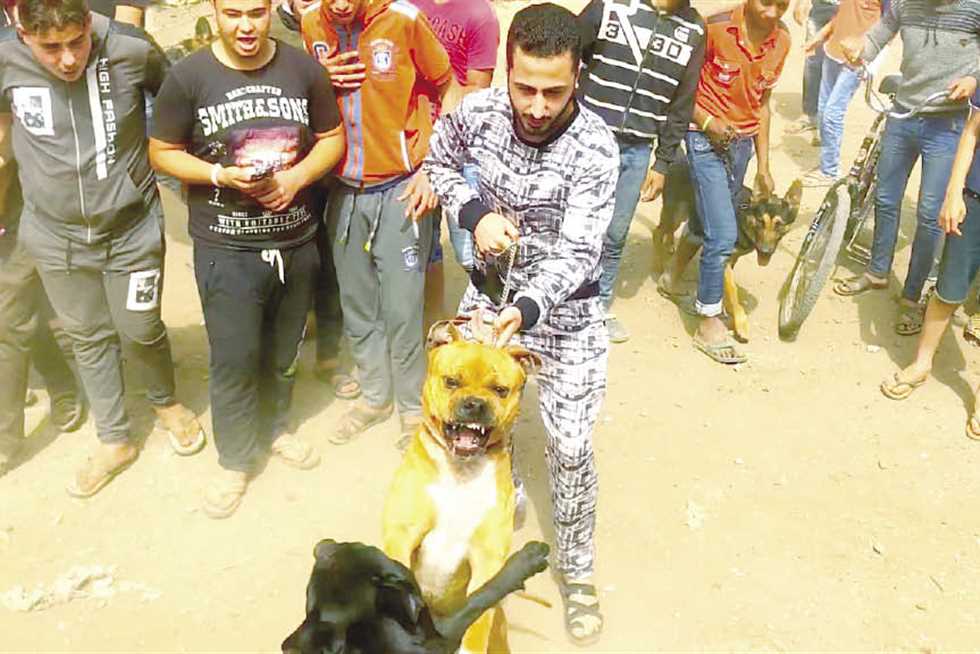
The competent authorities in Egypt have not yet conducted any serious investigations into the spread of the phenomenon of betting on "dog fighting", which has spread in many areas on the outskirts of the three governorates of Greater Cairo (Cairo – Qalyubia – Giza) and Alexandria.
-----------
*All photographs, aside from the last photo, are courtesy of Abdel Rahman al-Tohamy to Raseef22
Raseef22 is a not for profit entity. Our focus is on quality journalism. Every contribution to the NasRaseef membership goes directly towards journalism production. We stand independent, not accepting corporate sponsorships, sponsored content or political funding.
Support our mission to keep Raseef22 available to all readers by clicking here!
Interested in writing with us? Check our pitch process here!
